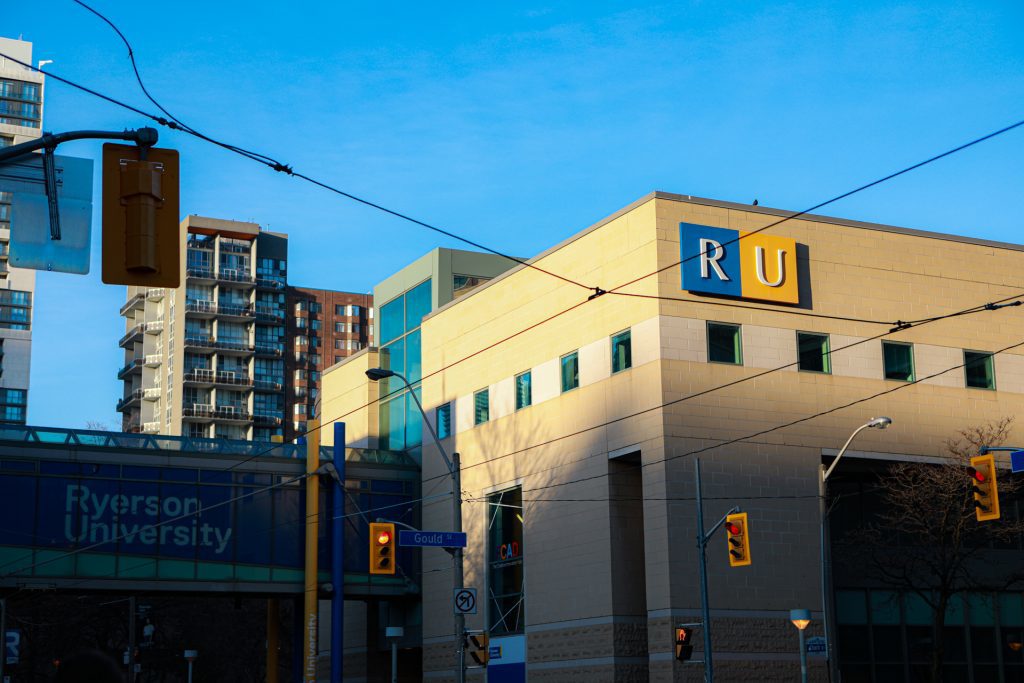Post-secondary students not qualified for CERB are concerned for their future job prospects

Nojoud Al Mallees, a Ryerson journalism master’s student, says this may be the very first summer in her five years of university she will likely be unable to find a job.
But Al Mallees won’t be the only student left behind.
On April 6, the federal government began accepting Canadian Emergency Response Benefit (CERB) applications for Canadians affected by the novel coronavirus outbreak.
The benefit will provide Canadians who have lost their job with $2,000 per month.
The current criteria for the benefit only includes students who have stopped work as a result of reasons related to COVID-19, according to the government’s website.
Al Mallees says she does not qualify for the CERB because she was going to begin work during the summer.
That is why Al Mallees started a petition last week calling on Prime Minister Justin Trudeau to reconsider student eligibility within the criteria.
The petition quickly amassed over 460 signatures within a few days of it being posted.

The master’s student says although it was difficult getting her petition out, there are thousands of other students like her who rely on summer employment to be able to financially support themselves during the school year.
Students call on government for support
“Time and time again it feels like students are always left out of these discussions,” Al Mallees added. “People forget that students also have living expenses and not everyone is living at home with their parents.”
On Monday, Trudeau addressed student concerns during his daily media briefing. “I know there’s also a lot of university or college students wondering what kind of job you’ll get this summer,” Trudeau said. “You need support now and work is underway to get it to you as soon as possible.”
Trudeau also announced that the federal government is looking at direct support for students.
“From modifications to the Canada Summer Job program to looking at direct support for students, we know that we need to do more for young people as they come out of university and look for projects and ways of securing income this summer,” said Trudeau.
In addition, the provincial government announced the suspension of student loan repayment for all Canadians, including interest accrual, which took effect March 30 and will go on until Sept. 30, according to the National Student Loans Service Centre (NSLSC) website.
Uncertainty in summer job prospects
Third-year student Sierra Mihalech has held an on-campus job at Ryerson for the past eight months, working between the Recreation and Athletics Centre (RAC) and Mattamy Athletic Centre (MAC).
Although she had to stop working mid-March when Ryerson closed down its campus buildings during the pandemic, Mihalech is still paid average weekly hours until the end of April.
However, for Mihalech, that doesn’t solve much.
She was counting on working full time at the school during the summer but she says Ryerson is holding back on giving out summer contracts because of the outbreak’s uncertainty and provincial restrictions.
However, Caroline Konrad, director of the Career and Co-op Centre at Ryerson, told the Ryersonian the Career Boost Summer 2020 Program is currently proceeding as planned, adding that the school is offering employers the option to move the start date to a later point due to the current circumstances.
“We have recommended June 1, which is keeping in line with [an] advisory to external employers hiring our students on summer co-op placements,” Konrad said. “A maximum of 35 work hours per week remains the same.”
Employers are also able to retain the original start date, and are encouraged during this period, to adapt aspects of the role where feasible, into a virtual work experience opportunity.
“I was supposed to have a guaranteed job all summer but now I don’t, which is adding stress to the situation,” said Mihalech.
Downtown Legal Services (DLS), a community legal clinic and clinical education program that is operated under the University of Toronto Faculty of Law, say they are expecting to see calls about the CERB from students when the program reopens intake for new clients in May.
“We imagine that we will start to see calls about these programs from people who aren’t sure if their situation is covered and from people looking for support and advice as to which programs to apply for,” DLS executive director Lisa Cirillo said in an email to the Ryersonian.
Although Mihalech is unsure if she qualifies for the CERB, she says she will be applying regardless.
She says she hopes for a response from the government that will include post-secondary students and address their concerns over lack of employment.

